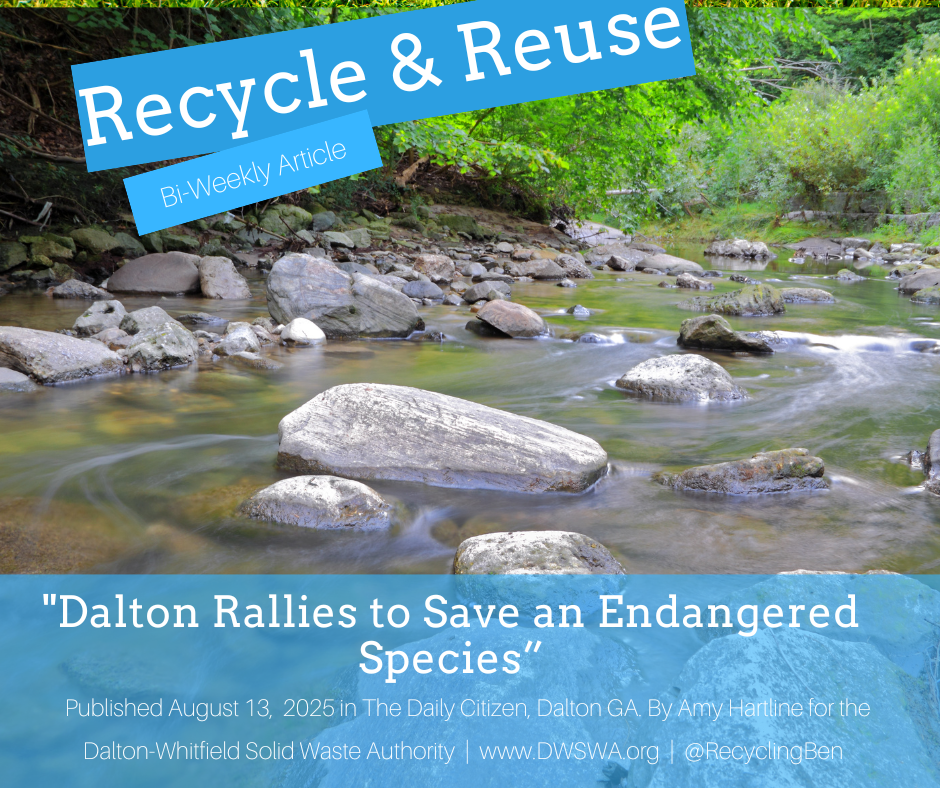National Go on a Field Trip Month
/Students from Whitfield County 4-H calculate how many plastic bottles are in one bale at the recycling center during a tour. Each bale weighs about 1,200 pounds and can contain more than 22,000 plastic bottles.
(Published on Wednesday, October 7, 2015, in The Daily Citizen newspaper, Dalton, GA.)
Recycle & Reuse: National Go on a Field Trip Month
October is National Go on a Field Trip Month, which encourages teachers and families alike to schedule memorable educational opportunities outside of the classroom. Field trips are effective ways to teach students outside of school and are worth the extra planning efforts. You may remember going to the zoo or visiting an art museum with classmates when you were in elementary school. Why not encourage the students in your family to do the same? Here are some tips on planning field trips that can apply if you’re a teacher, parent, or an after school volunteer.
The first step in planning a field trip is researching the places you can visit with a group of students. School groups may want to visit a place that coincides with their current curriculum to help fulfill learning standards while after school groups like Boys and Girls Club can have more flexibility. You probably will find a whole lot of information online about your desired field trip destination, however, it’s always a good idea take some time to call the staff to get the most up to date information about their particular program.
When calling a potential location be sure to ask about the recommended dates and times to visit for a field trip, if there are any limits on the number of visitors or groups per visit, availability of restrooms and eating areas, and access for special needs students. Some venues are large and can accommodate multiple school groups in one day while others may have limited space. Be sure to ask if there are guided or self-guided tours so you can prepare the group ahead of time. Also, find out if there are any fees associated with the trip. When a date and time has been chosen don’t forget to reserve the school bus or other transportation, and sack lunches if needed.
Before going on a field trip get students excited by encouraging them to do their own research about the venue. If you’re visiting a museum, for example, you could provide maps ahead of time so the students are familiar with the site. Challenge them to find a particular painting while on the trip, then have them create their own unique painting upon returning to school. If you’re visiting a manufacturing facility you can have students draw or write about what they think the facility will look like. After the visit, they can draw or write about what they actually saw. Both methods are a way to evaluate what the students have learned by rating their knowledge before and after.
As you plan for the field trip be sure to gather signed permission slips, and emergency contact information from parents and volunteers. Distribute an agenda with your contact information in case of emergency. Pack a first aid kid, a camera, and things to occupy students on the bus. If you’re visiting a large facility you could require that students all wear the same color t-shirt or distinctive name badges to identify them in a crowd. Nametags may also include the group affiliation or school and a phone number for a teacher or other adult.
During the field trip count students at each transition point. Volunteers and even the children can help count to make sure no one is left behind. For large groups, you may also want to assign students to each other in groups of two or three. These students will be buddies during the trip and are responsible for each other and to help count. Mature students can be assigned to the beginning and end of the line to help keep everyone in the group together as they walk.
The Dalton-Whitfield Solid Waste Authority offers an educational field trip of the recycling center facility and the landfill operation at the south end of Whitfield County. The field trip is available to public schools, private schools, homeschool groups, and to organizations that offer services to children, such as the Boys and Girls Club that are located in Whitfield County at no charge. Visitors are responsible for their own transportation.
The recycling center and landfill field trip consists of a tour of the facility and an optional environmental education activity. During the basic one-hour tour students follow the garbage truck to the landfill and learn about what happens to the things we throw away. Then, they visit the recycling center to find out what happens to the things we recycle. This tour is adaptable for children and adults and is led by Solid Waste Authority staff. An educational activity will add a half hour to the tour.
Schedule a tour for your group by calling the recycling center at 706-278-5001 or visit the Solid Waste Authority’s Environmental Education Program webpage: www.dwswa.org/environmental-education-program. To find other tour opportunities in Georgia visit Environmental Education in Georgia: www.eeingeorgia.org.
































